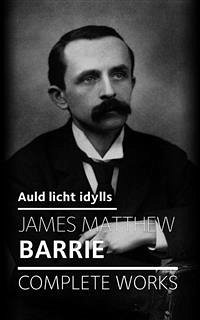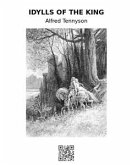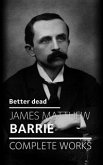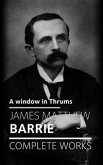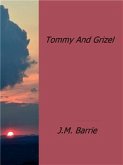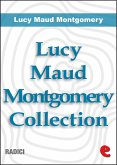From a young age Barrie wished to pursue a career as an author, but was initially dissuaded by his family, who wished him to have a profession in the ministry. However, Barrie worked out a compromise, attending university at Edinburgh, but opting to study literature. An extremely introverted young man, Barrie was shy about his small size of five feet. Nevertheless, he succeeded in his studies, going on to graduate with his M.A. on April 21, 1882.
Following his graduation, Barrie worked for a year and a half as a staff journalist on the Nottingham Journal. He then returned to his beloved home town Kirriemuir, which he liked to call ‘Thrums’, where he wrote one of his mother’s stories about the town. When he submitted the piece to the St. James’s Gazette in London, the editor ‘liked that Scotch thing’ so much that Barrie was encouraged to write a series of similar pieces, serving as the basis for his first published books, Auld Licht Idylls (1888), A Window in Thrums (1890) and The Little Minister (1891). The stories concern the Auld Licht, a strict religious sect that the author’s grandfather had once belonged to. A majority of critics attacked these early works of Barrie, tending to ridicule them as sentimental and nostalgic depictions of a parochial Scotland far from the realities of the industrialised nineteenth century. Nevertheless, they were surprisingly a commercial success, being popular enough with readers to establish Barrie as a successful writer.
Following his graduation, Barrie worked for a year and a half as a staff journalist on the Nottingham Journal. He then returned to his beloved home town Kirriemuir, which he liked to call ‘Thrums’, where he wrote one of his mother’s stories about the town. When he submitted the piece to the St. James’s Gazette in London, the editor ‘liked that Scotch thing’ so much that Barrie was encouraged to write a series of similar pieces, serving as the basis for his first published books, Auld Licht Idylls (1888), A Window in Thrums (1890) and The Little Minister (1891). The stories concern the Auld Licht, a strict religious sect that the author’s grandfather had once belonged to. A majority of critics attacked these early works of Barrie, tending to ridicule them as sentimental and nostalgic depictions of a parochial Scotland far from the realities of the industrialised nineteenth century. Nevertheless, they were surprisingly a commercial success, being popular enough with readers to establish Barrie as a successful writer.

